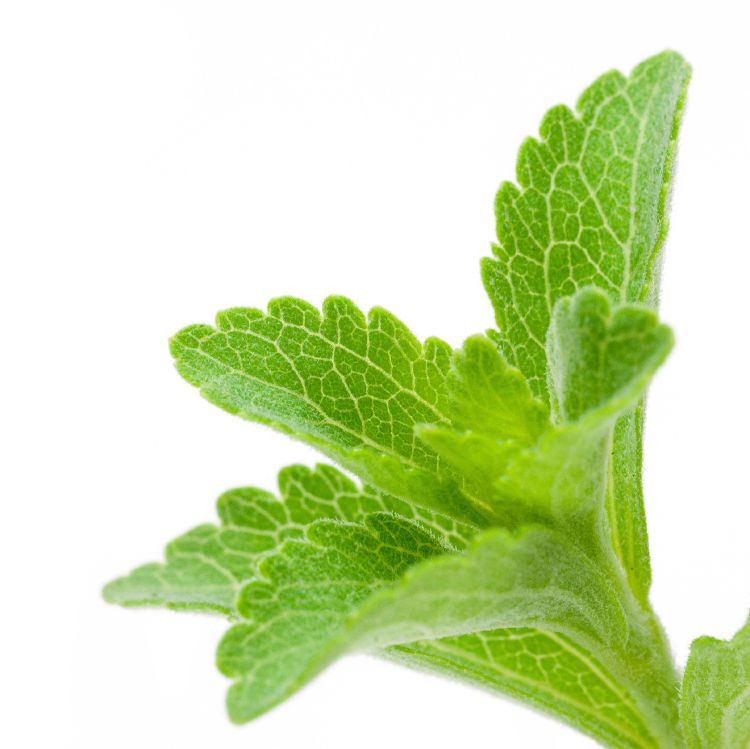Life cycle analysis finds that Cargill’s EverSweet is among the most sustainable stevia options
Avansya, a joint venture between Cargill and DSM to develop sustainable sweeteners, commissioned a third-party Life Cycle Analysis (LCA) of its EverSweet stevia sweetener.
Photo © iStockphoto.com/ olm26250

Avansya, a joint venture between Cargill (Wayzata, MN) and DSM to develop sustainable sweeteners, commissioned a third-party Life Cycle Analysis (LCA) of its EverSweet stevia sweetener. The LCA found that EverSweet offers significant environmental advantages compared to other sweetener options. This is due to the innovative and sustainable way Cargill and DSM extract Reb M and Reb D from the stevia plant. These two constituents of the stevia leaf are the best tasting, but comprise less than 1% of the leaf. Through fermentation, Cargill and DSM are able to create EverSweet, a Reb M and Reb D stevia sweetener, with less water, less land, and a smaller carbon footprint.
For the LCA, EverSweet was compared to three production pathways: leaf-based Reb A, leaf-based Reb M, and Reb M produced through bioconversion. For benchmarking purposes, it was also compared to beet sugar, and cane sugar. Results showed that EverSweet outperformed all the other sweeteners, with leaf-based Reb M being the least sustainable approach. Because Reb M occurs in extremely low concentrations in stevia leaf, it requires 70 times more stevia leaves than leaf-based Reb A. Reb M produced through bioconversion scored better than leaf-based Reb M and Reb A, but when compared to bioconverted Reb M, EverSweet produces 60% less carbon, and requires 70% less land. This results in a 60% lower ecological footprint, delivering additional benefits related to land use such as biodiversity, ecosystems impact, and reduced need for water for irrigation.
According to Cargill, the greenhouse gas emissions saved by using one ton of EverSweet is equivalent to 311,000 miles driven by the average passenger car or charging more than 15 million smartphones, when compared to bioconverted Reb M.
“We knew our approach offered tangible environmental benefits,” said Andrew Ohmes, global product line manager for high intensity sweeteners, Cargill, in a press release. “Now, with the completion of our LCA, we can quantify this sustainability edge, giving our food and beverage customers even greater confidence in the environmental credentials of EverSweet.”
The LCA is part of Cargill’s ongoing effort to offer greater transparency into its stevia sustainability efforts. Concurrently, Cargill is launching a new Virtual Stevia Harvest Experience, showcasing its longstanding sustainability standard that helps ensure responsible, ethical sourcing for its leaf-based offerings. The virtual experience walks through each stage of the company’s leaf-based stevia production process, highlighting Cargill’s agricultural and manufacturing standards, which are designed to minimize the environmental impact of production practices, ensure worker safety and welfare, and prevent forced, convict or child labor.
“When we created the first commercial-scale stevia supply chain, we made sustainability a priority,” Ohmes said. “In the ensuing years, we created the industry’s premier leaf-based stevia sustainability program and pioneered a better stevia sweetener made with fermentation technology. Completing this comprehensive Life Cycle Analysis and unveiling our Virtual Stevia Harvest are further evidence of that commitment, as we continue to provide greater transparency into our operations and push the industry toward innovation that sustains.”
HHS announces restructuring plans to consolidate divisions and downsize workforce
Published: March 27th 2025 | Updated: March 27th 2025According to the announcement, the restructuring will save taxpayers $1.8 billion per year by reducing the workforce by 10,000 full-time employees and consolidating the department’s 28 divisions into 15 new divisions.










